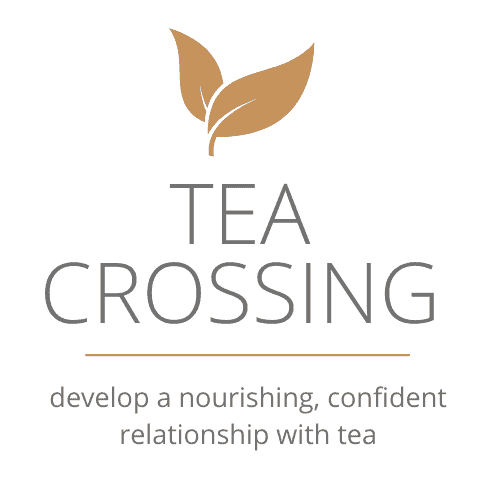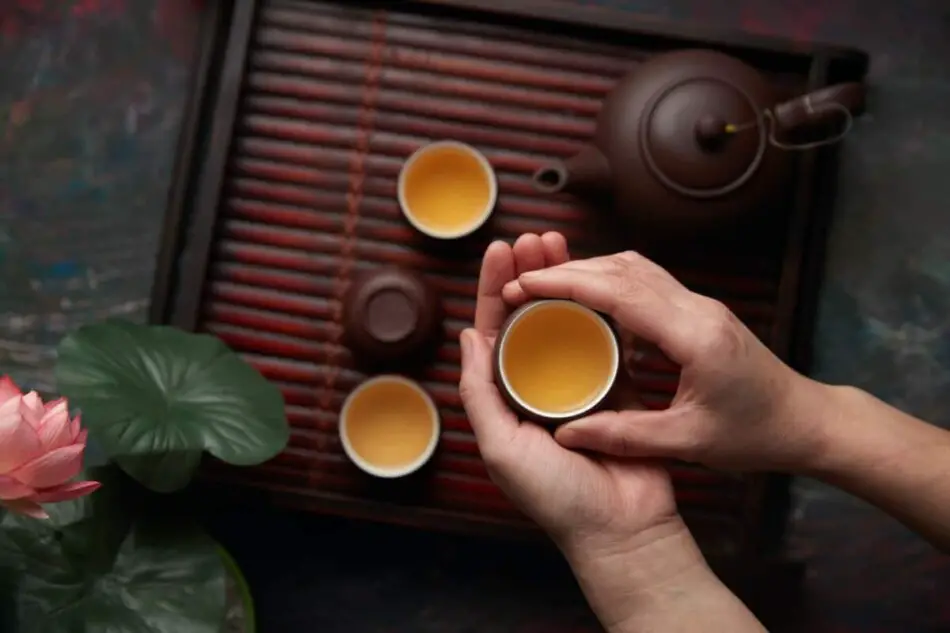Do you suffer from bloating? and you are asking the question, can green tea help with bloating? If so, you’re not alone. Bloating is a common problem that many people experience daily. Fortunately, there are some things that you can do to help relieve the symptoms of bloating. In this article, I will discuss the benefits of green tea for bloated stomachs. I will also provide some tips on how to drink green tea for maximum relief from bloating!
Green tea contains catechins, which are a type of antioxidant. Antioxidants can help to reduce inflammation in the body, and this may help to reduce bloating. Green tea also contains caffeine, which can help to stimulate the digestive system and promote regularity. However, too much caffeine can worsen bloating, so it’s important to limit your intake if you’re prone to this problem.
If you’re not sure how much is too much, start with one cup per day and see how your body responds. Herbal teas containing ginger or peppermint may also help to relieve bloating by promoting digestion. Try drinking a cup after meals or when you feel bloated. Chewing on a piece of the fresh ginger root may also help. Probiotics are another option to consider when dealing with bloating.
Tips On How To Drink Green Tea To Relief Bloating
When it comes to bloating, green tea can be a helpful tool in relieving symptoms. Here are five tips on how to drink green tea to help with bloating:
- Drink green tea first thing in the morning on an empty stomach. This will help move things along and get your digestive system going.
- Make sure you are drinking quality green tea. Look for organic brands that are free of pesticides and other chemicals.
- Brew your green tea using filtered water instead of tap water. This will reduce the number of impurities that end up in your cup.
- Steep your green tea for the recommended time (usually around three minutes) to ensure that you are getting all of the health benefits.
- Drink green tea throughout the day, especially after meals. This will help with digestion and prevent bloating.
Following these tips, you should notice a difference in your bloating symptoms. Green tea is a natural remedy that can be very effective in relieving discomfort caused by bloating. Give it a try and see for yourself!

What Other Teas Reduces Bloating?
Other teas that have been traditionally used to reduce bloating and promote digestive health are ginger tea, licorice root tea, dandelion root tea, and mint tea. All of these teas can be easily brewed at home using fresh or dried herbs. Simply add one teaspoon of the herb (or one tablespoon of the dried herb) to a cup of boiling water and let steep for five minutes before drinking. If you find the taste too strong, you can add honey or lemon to taste. Drink two to three cups per day for best results.
When it comes to reducing bloating, there are few things more effective than drinking plenty of fluids. So make sure to also drink plenty of water throughout the day in addition to herbal teas. Aim for eight glasses per day and you should start to see a reduction in bloating within a few days.
When Should You Not Drink Green Tea?
You might be surprised to learn that there are situations when it’s not recommended that you drink green tea. Here are a few examples:
- If you’re pregnant or breastfeeding, you should avoid drinking green tea. This is because it contains caffeine and other compounds that can cross the placenta and enter the baby’s bloodstream.
- Green tea can also interfere with iron absorption, so if you have anemia or are at risk for iron deficiency, it’s best to avoid drinking it.
- If you have a history of kidney stones, green tea may not be the best beverage choice for you since it contains oxalates which can contribute to stone formation.
- Green tea can also exacerbate GERD symptoms like heartburn and indigestion, so if you suffer from these conditions, you might want to steer clear of green tea.
Hopefully, this gives you a better idea of when it’s not recommended to drink green tea. In general, it’s a very healthy beverage but there are certain situations where it’s best to avoid it. As always, talk to your doctor if you have any concerns about drinking green tea.
How Much Green Tea Should I Drink For Inflammation?
The amount of green tea you should drink for inflammation depends on a few factors, including the severity of your inflammation and your weight. For most people, drinking two to three cups of green tea per day is a good starting point. If you’re struggling with more severe inflammation, you may want to consider drinking up to six cups per day. Green tea is generally safe for most people, but be sure to talk to your doctor before increasing your intake if you have any concerns.
If you’re looking for an easy way to incorporate more green tea into your diet, try adding a cup or two to your daily routine. You can enjoy it hot or iced, and there are endless ways to flavor it depending on your preferences. With a little trial and error, you’re sure to find a green tea that you love. Just remember to listen to your body, and drink in moderation if you’re concerned about any potential side effects.
Types Of Green Tea To Use
There are different types of green tea, each with its unique flavor profile and health benefits. When it comes to bloating, however, not all green teas are created equal. Here are three of the best types of green tea to drink for bloating relief:
Matcha Green Tea
Matcha is a type of powdered green tea made from whole, ground-up tea leaves. It has a higher concentration of antioxidants and caffeine than regular green tea, making it a great option for those looking for an energy boost. Matcha is also known for its detoxifying properties, which can help reduce bloat-causing toxins in the body.
Sencha
Sencha is a type of Japanese green tea that’s characterized by its bright green color and grassy flavor. It is a good option for those who are sensitive to caffeine, as it has fewer stimulants than other types of green tea. Additionally, sencha contains high levels of catechins, which are compounds that have been shown to reduce bloating.
Gyokuro
Gyokuro is a type of Japanese green tea that’s grown in shade, resulting in a higher concentration of chlorophyll and amino acids. This results in a sweeter, more full-bodied flavor compared to other types of green tea. Gyokuro is also relatively low in caffeine, making it a good choice for those who are looking to avoid the jitters.
Final Words
Although more research is needed to confirm the effects of green tea on bloating, it appears that this beverage may be a helpful natural remedy for this common digestive issue. If you’re experiencing bloating, consider incorporating green tea into your diet and see if it makes a difference for you. Cheers!

